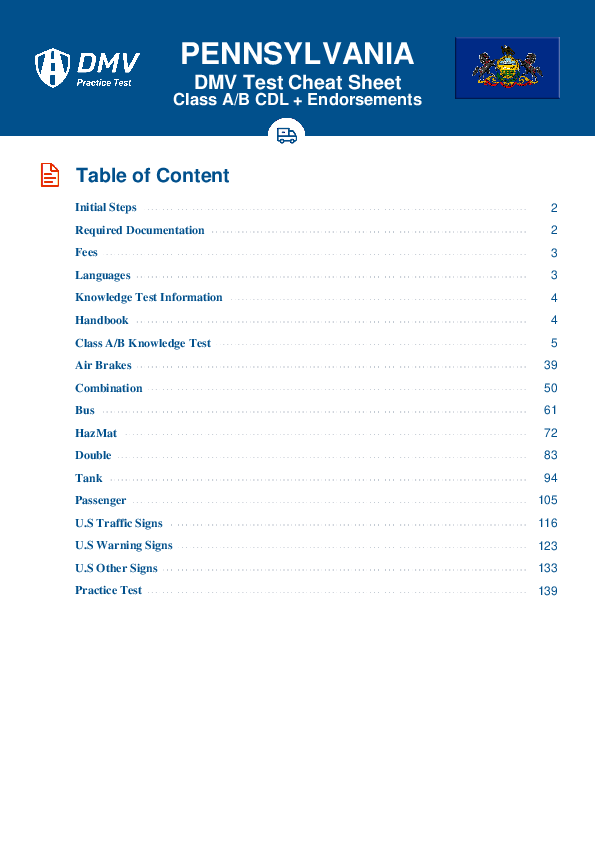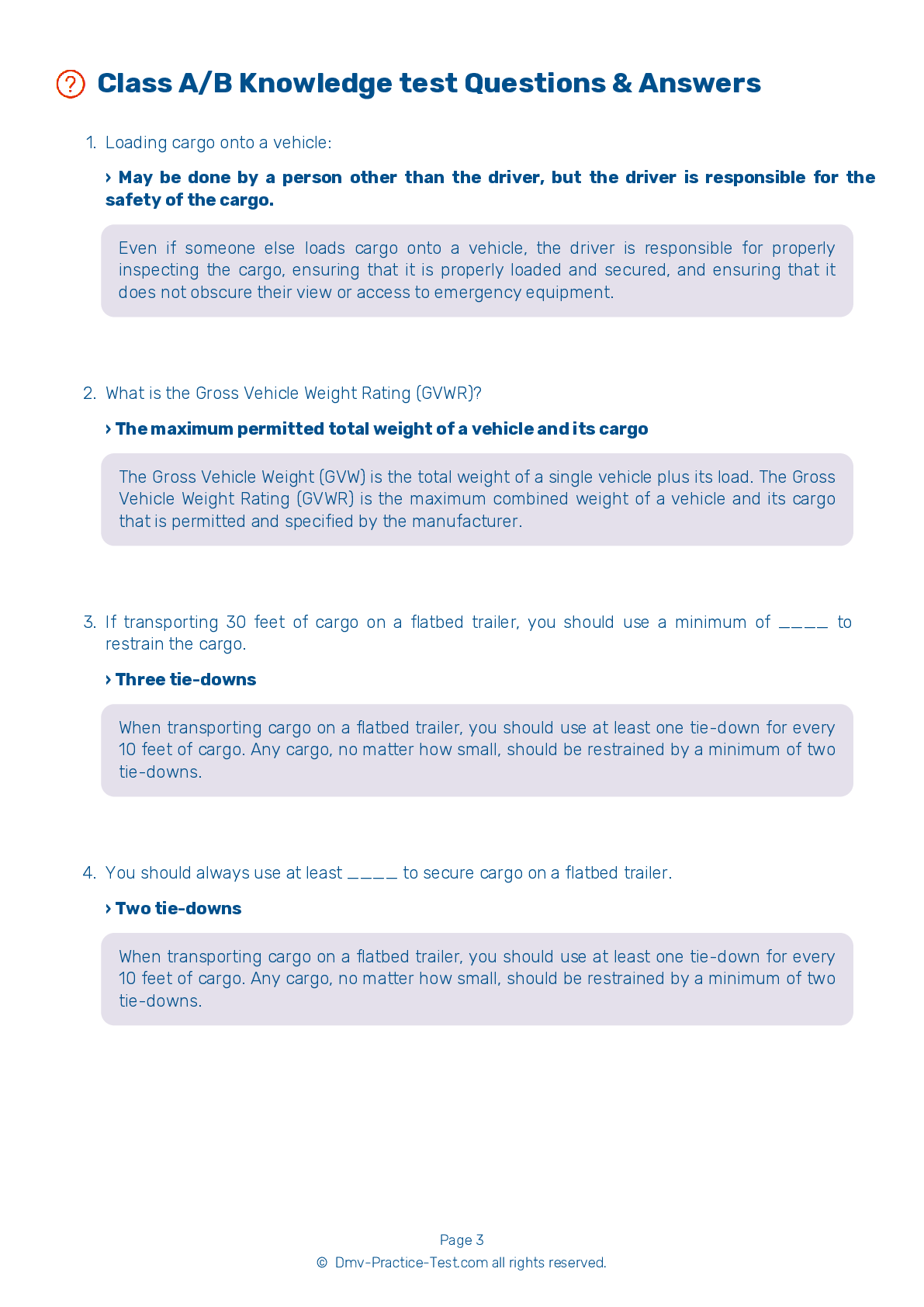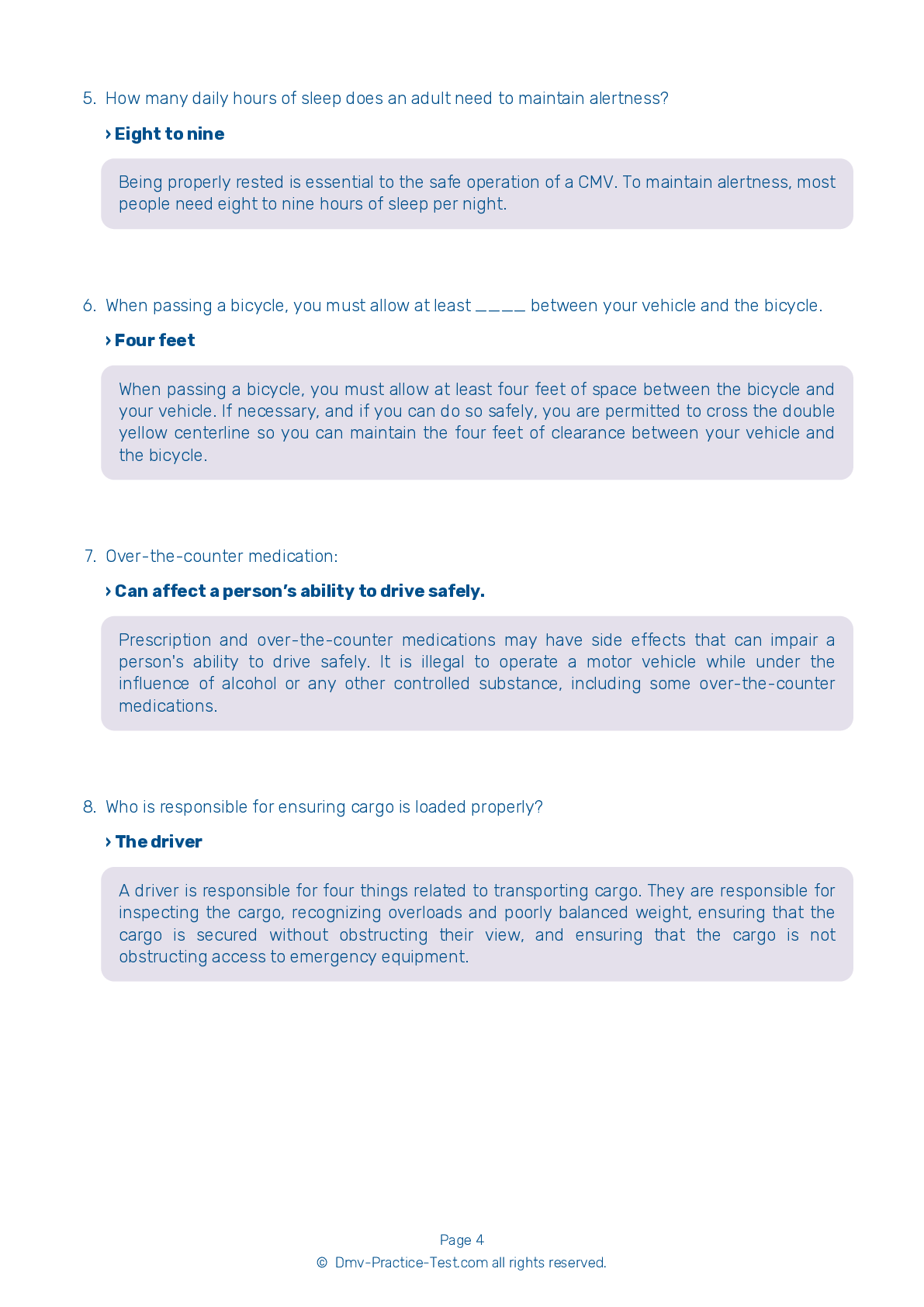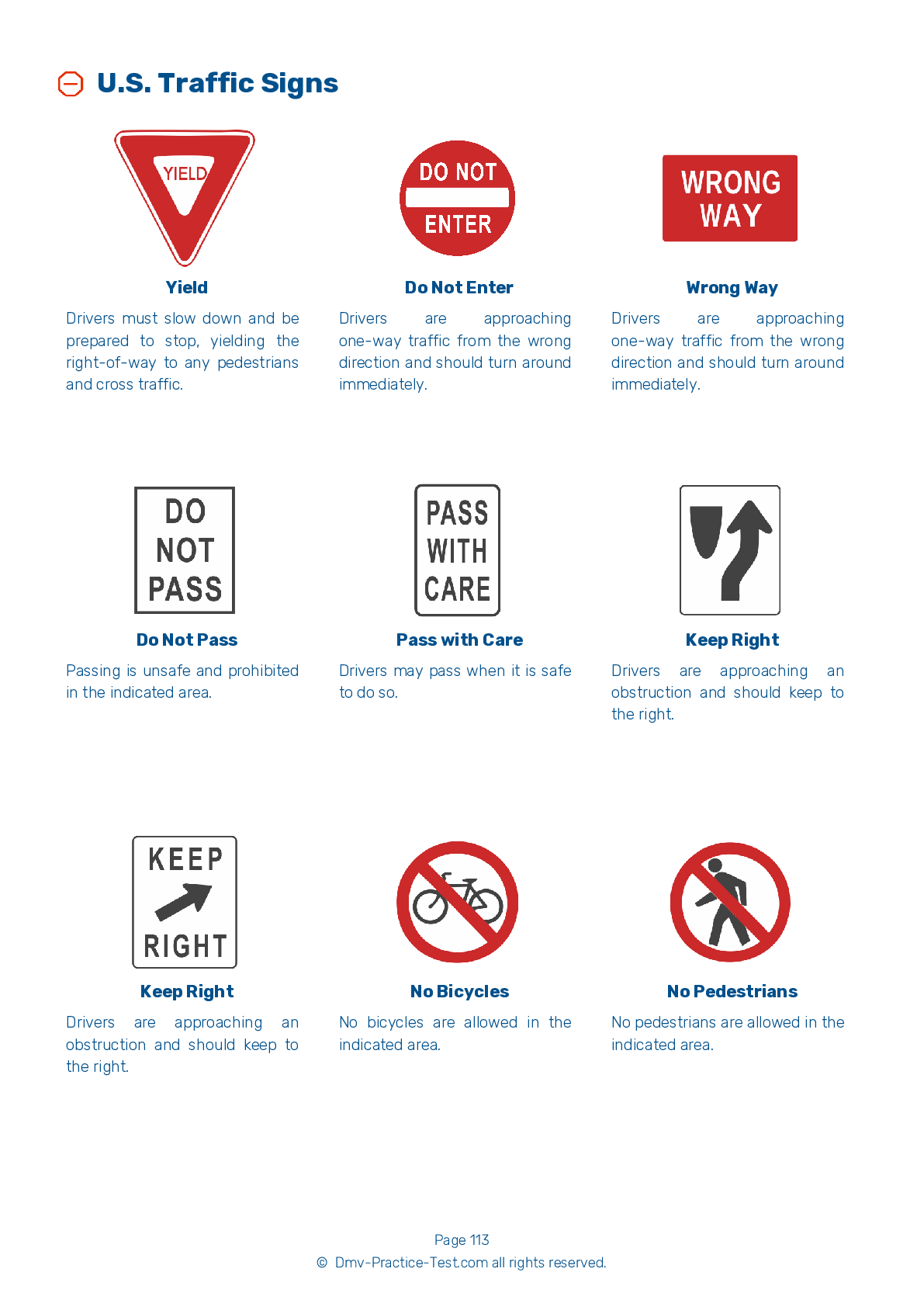Double #1
Double Triple Test | Pennsylvania 2026 #1 Page 3 of 3
Train for FREE with our Pennsylvania CDL double triple practice test online. The official exam test consists of several obligatory parts, with all of them checking your knowledge of different blocks of road rules. If you need to obtain a PA CDL double triple license in 2026, practice as much as possible. Free sample tests published on our website will help you check and improve your knowledge and boost your grades. Please bear in mind that DMV requirements may vary from state to state.
20
16
20
15 . In a double or triple combination:
The weight of the trailers does not matter.
In a double or triple, the more heavily-loaded trailer should be immediately behind the tractor.
16 . Which part of a combination vehicle is the most likely to turn over?
The last trailer
The "crack-the-whip" effect makes the last trailer in a combination the most likely to turn over. Be especially careful when operating a double or triple combination vehicle around a turn or corner.
17 . What happens when you push in the trailer air supply control knob?
Air brakes are applied.
To send air to the emergency (supply) lines, a driver can push in the trailer air supply control knob. The knob is red and eight-sided.
18 . What happens if, after connecting a trailer, there is no air pressure in the trailer brakes?
Alternative brakes must be used.
After coupling trailers, be sure to check the air brakes. If air does not flow all the way to the back each brake line, the brakes will not work.
19 . Due to the "crack-the-whip" effect:
Vehicles following a truck will be able to travel faster than normal.
Double and triple trailer combinations are more likely to turn over due to the "crack-the-whip" effect than are other combination vehicles. Drivers should be aware of the rearward amplification of their specific vehicles and steer accordingly.
20 . When driving a double or triple, it is important to remember that:
The vehicle can easily fit into small spaces.
Doubles and triples need more space than other vehicles, both because they are longer than other vehicles and because their size and weight prevent them from turning or stopping suddenly. When driving a double or triple, always make sure you have enough space before entering traffic, crossing traffic, or changing lanes.
2026 Pennsylvania | Frequently Asked Questions
In Pennsylvania, a Commercial Driver's License (CDL) Class A is defined as a license that allows the holder to operate any combination of vehicles with a Gross Combination Weight Rating (GCWR) of 26,001 pounds or more, provided the vehicle(s) being towed have a GVWR of more than 10,000 pounds. This includes tractor-trailers and truck and trailer combinations.
A Class A CDL license in Pennsylvania allows the holder to operate vehicles such as tractor-trailers, truck and trailer combinations, tank vehicles, livestock carriers, and flatbeds. This license is required for any combination of vehicles with a Gross Combination Weight Rating (GCWR) of 26,001 pounds or more if the towed vehicle is over 10,000 pounds.
To obtain a Class A CDL in Pennsylvania, you must be at least 18 years old (21 for interstate driving), possess a valid Pennsylvania driver's license, and pass a vision test. You'll also need to pass a general knowledge test and a skills test, which includes a pre-trip vehicle inspection, a basic controls test, and an on-road driving exam.
In Pennsylvania, you must be at least 18 years old to qualify for a Class A CDL license. However, you must be 21 years old or older if you plan to drive across state lines or carry hazardous materials. Please remember that additional requirements, like passing a medical examination and specific tests, also apply.
Endorsements are not required for a Class A CDL license, but they can enhance your driving privileges. Examples include H (Hazardous materials), T (Double/Triple trailers), P (Passenger vehicles), S (School buses), and N (Tank vehicles). Each endorsement requires passing a separate written knowledge test and, in some cases, a skills test.
The Class A CDL skills test in Pennsylvania is divided into three parts: a pre-trip vehicle inspection to check your understanding of your vehicle and its safety, a basic controls test to assess your ability to control the vehicle, and an on-road driving exam to evaluate your practical driving skills in various traffic situations.
Yes, Class A CDL license holders may face limitations based on their driving and medical record. For instance, restrictions can be imposed for lack of English language proficiency, inability to operate a manual transmission, or if the driver requires corrective lenses. Additionally, drivers must pass a physical exam every two years to maintain their license.
Yes, in Pennsylvania, the written Class A CDL test is offered in multiple languages besides English. However, federal regulations require that all CDL holders must be able to read and speak English sufficiently to converse with the general public, understand highway traffic signs and signals, respond to official inquiries, and make entries on reports and records.
Yes, accommodations can be made for the Class A CDL written test if you have a disability. You need to contact the Pennsylvania Department of Transportation (PennDOT) ahead of time to discuss your needs. Accommodations may include extended time, a separate testing room, or having the test read aloud. It's important to provide sufficient documentation of your disability.
Yes, if you don't pass the Class A CDL written test in Pennsylvania, you can retake it. However, you must wait at least seven days before retaking the test. It's important to review the areas you struggled with before attempting the test again. Keep in mind that additional fees may apply for each retest.



